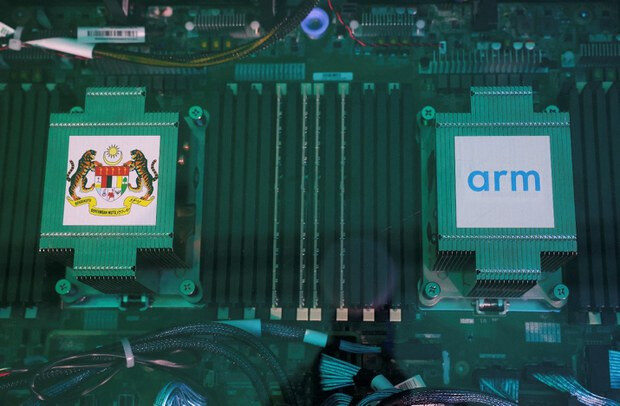
KUALA LUMPUR – Malaysia is aggressively pivoting towards advanced semiconductor design and production, marking a strategic shift from its traditional role in chip assembly and testing. This move comes amidst escalating Sino-U.S. technological tensions, which present both opportunities and challenges for the nation's burgeoning data center industry.
At the heart of this ambition is a landmark $250 million, 10-year partnership with Arm Holdings. This agreement grants Malaysia access to Arm's leading-edge chip designs, empowering the country to develop its own customized semiconductors. "The partnership with Arm will accelerate our move up the value chain," affirmed Wong Siew Hai, president of the Malaysia Semiconductor Industry Association.
The push for domestic chip capabilities is also fueled by concerns over U.S. export restrictions on advanced AI chips, crucial for Malaysia's rapidly expanding data center sector. These restrictions, aimed at limiting China's technological advancement, have created uncertainties for Malaysia, a hub for major tech investments from giants like Nvidia, Microsoft, and ByteDance.
Economy Minister Rafizi Ramli clarified that this initiative is primarily an economic strategy, not a geopolitical maneuver. "This is simply about Malaysia making the long-overdue transition from backend manufacturing to IP-driven semiconductor innovation," he stated. The government aims to expedite chip production timelines from the previously projected 10 years to a more aggressive five to seven years.
Prime Minister Anwar Ibrahim hailed the Arm agreement as a "pivotal moment," outlining plans to pioneer "Made by Malaysia AI chips."
Analysts believe that by enhancing its semiconductor capabilities, Malaysia can reduce its reliance on foreign suppliers and solidify its position as a key technology player in Southeast Asia. The nation's substantial investments in data centers and digital infrastructure, exceeding billions of dollars, underscore its commitment to fostering a dynamic digital economy.
In navigating the complexities of the global tech landscape, Malaysia seeks to maintain neutrality while proactively responding to developments from both the U.S. and China. The nation's strategic focus on semiconductor innovation is poised to reshape its role in the global technology supply chain, positioning it as a significant player in the future of chip technology.
[Copyright (c) Global Economic Times. All Rights Reserved.]



























